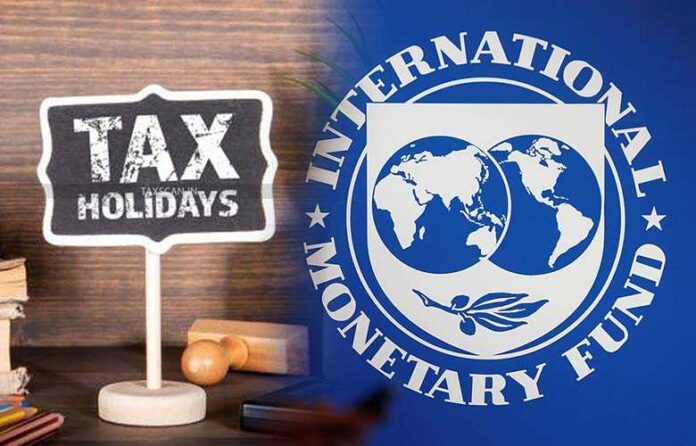By: Staff Writer
July 06, Colombo (LNW): Sri Lanka has agreed to halt the approval of new tax concessions under the Port City Act and the Strategic Development Projects (SDP) Act, as part of a broader reform agenda under the International Monetary Fund (IMF) program aimed at improving fiscal discipline and transparency.
The government will amend both laws to establish rule-based, transparent criteria for granting tax incentives and reduce the duration of tax holidays.
The SDP Act has been especially controversial, facing allegations of corruption and offering unusually long tax exemptions, including tax-free salaries to executives—raising concerns about fairness when other individuals earning over Rs. 100,000 are taxed.
As per the IMF agreement, the SDP Act is scheduled to be amended by August 2025. Revisions to the Port City Act will follow by October 2025, in consultation with IMF staff, to align with international best practices.
According to the IMF, unchecked and overly generous tax exemptions have severely reduced government revenue, contributing to Sri Lanka’s financial crisis. The Fund emphasized that while targeted tax incentives can support foreign investment, they cannot replace essential structural reforms in governance, legal frameworks, labor markets, and land use.
Sri Lanka’s current corporate tax rate of 30% is significantly higher than many East and Southeast Asian economies. For instance, Cambodia, Vietnam, and Thailand levy corporate taxes between 15–20%, while currency-stable regions like Singapore, Hong Kong, and Brunei boast rates under 17%, with some not levying personal income taxes at all. The high tax burden in Sri Lanka, compounded by periodic currency crises, has undermined investor confidence.
The IMF and local analysts have criticized Sri Lanka’s repeated monetary policy missteps, especially the central bank’s reliance on aggressive money printing and interest rate targeting, which has destabilized the currency. Since 2012, the rupee has depreciated from 113 to over 300 per US dollar, triggering economic instability, public unrest, and the eventual default on external debt.
Although the government had earlier pledged to freeze new exemptions, Sri Lanka admitted that it had recently granted tax benefits to 24 companies designated as “Businesses of Strategic Importance” without consulting the IMF. These include four primary businesses, three duty-free enterprises, and 17 secondary businesses. Despite the breach, authorities said these approvals would stand due to legal and reputational concerns.
The government has committed to sharing monthly updates on tax exemptions with the IMF to ensure greater oversight. The IMF stressed that maintaining these commitments is vital for restoring credibility and preventing further revenue losses.
Meanwhile, concerns persist that the dollarized Port City, designed to offer monetary stability, may attract mainland firms seeking tax advantages, resulting in further leakage of tax revenue. Similar trends are already observed, with Sri Lankan businesses reportedly relocating operations to tax-friendly jurisdictions like Dubai.

